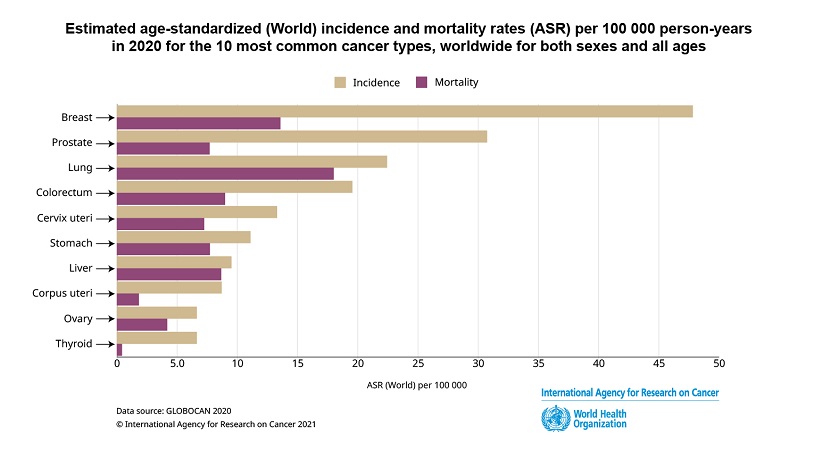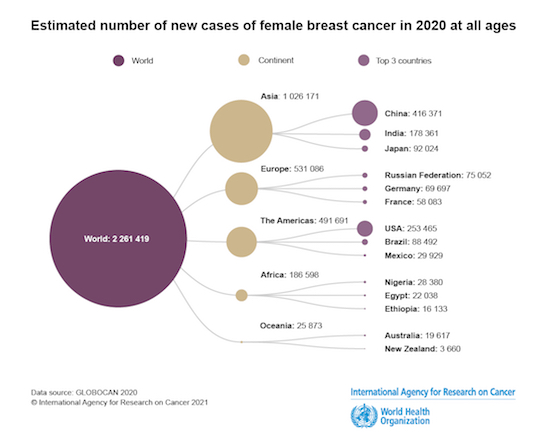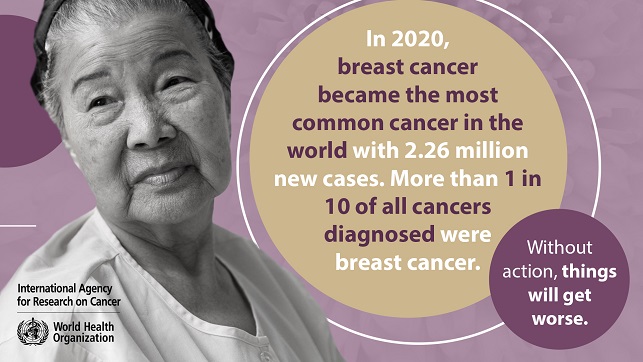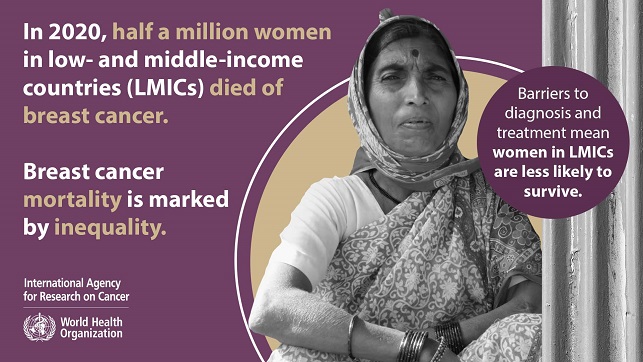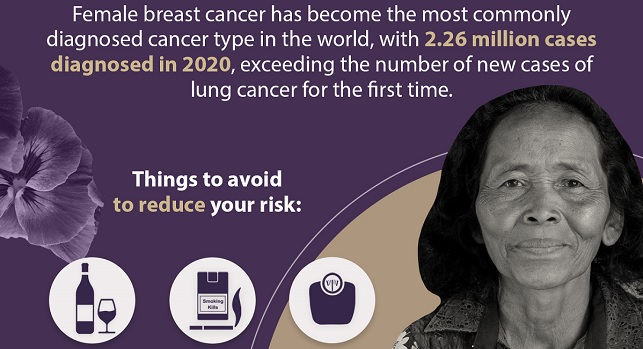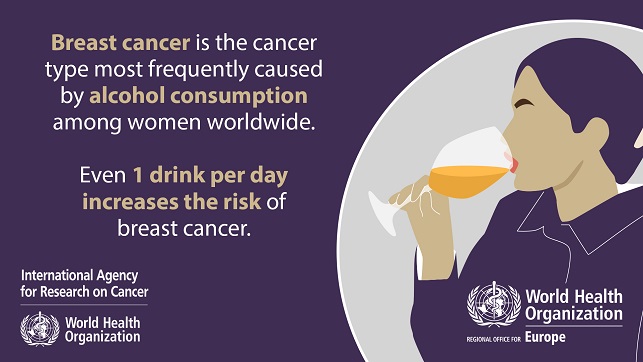
During October, the International Agency for Research on Cancer (IARC) will mark Breast Cancer Awareness Month 2021 with a series of videos, tweets, and infographics focusing on the Agency’s work to understand and tackle the global burden of breast cancer.
Read more
About breast cancer
About Breast cancer
The global burden of breast cancer mortality is marked by inequality. In high-income countries, where the prognosis for patients with breast cancer is generally quite favourable, there are disparities in survival between different socioeconomic groups. In low- and middle-income countries, barriers to diagnosis and treatment mean that women are much less likely to survive the disease. In 2020, half a million women in low- and middle-income countries died of breast cancer; almost three quarters of global deaths from the disease occurred in these countries.
This situation is projected to get worse. IARC estimates that by 2040 the incidence of breast cancer will increase by more than one third, to more than 3 million new cases per year, and breast cancer mortality will increase by more than one half, to more than 1 million deaths per year. These increases will be driven mostly by demographic factors as populations age and lifestyle factors change, particularly in low- and middle-income countries.
IARC is working to limit the increases in breast cancer incidence and mortality and is part of the World Health Organization’s Global Breast Cancer Initiative, which aims to improve access to breast cancer early diagnosis and prompt comprehensive breast cancer management.
- Scientists in various IARC Research Branches are studying:
- the causes of breast cancer, such as environmental and lifestyle factors;
- the barriers that prevent women from being diagnosed and treated, such as cultural taboos, geographical location, or socioeconomic issues; and
- the most effective methods of preventing breast cancer at the population level, by evaluating screening methods and delivery techniques that meet the needs of women and public health stakeholders.
Videos
Dr Manon Cairat Postdoctoral Scientist – Nutrition and Metabolism
les glucocorticoïdes et le risque de cancer du sein en fonction de type et de stade
Dr Eileen Morgan Postdoctoral Scientist – Cancer Surveillance
breast cancer, risk factors, and inequality
Ms Harriet Rumgay Doctoral Student – Cancer Surveillance
How alcohol consumption can cause cancer
Dr Partha Basu Deputy Branch Head – Early Detection Prevention and Infections
how breast cancer care was improved in Morocco
Dr Zdenko Herceg Branch Head – Epigenomics and Mechanisms
Predicting breast cancer – How IARC scientists read the map hidden in an individual’s blood
Social media tiles
Social Media tiles
Related IARC studies
Recent IARC studies related to breast cancer
- Estimated number of cancers attributable to occupational exposures in France in 2017: an update using a new method for improved estimates https://doi.org/10.1038/s41370-021-00353-1
- Health system factors that influence diagnostic and treatment intervals in women with breast cancer in sub-Saharan Africa: a systematic review https://doi.org/10.1186/s12889-021-11296-5
- Biomarkers of mammographic density in premenopausal women https://doi.org/10.1186/s13058-021-01454-3
- An umbrella review of the evidence associating diet and cancer risk at 11 anatomical sites https://doi.org/10.1038/s41467-021-24861-8
- Global burden of cancer in 2020 attributable to alcohol consumption: a population-based study https://doi.org/10.1016/s1470-2045(21)00279-5
- Patterns of care of breast cancer patients in Morocco – a study of variations in patient profile, tumour characteristics and standard of care over a decade https://doi.org/10.1016/j.breast.2021.07.009
- Use of systemic glucocorticoids and risk of breast cancer in a prospective cohort of postmenopausal women https://doi.org/10.1186/s12916-021-02004-6
- Obesity hurts: the why and how of integrating weight reduction with chronic pain management https://doi.org/10.1093/ptj/pzab198
- Association of germline genetic variants with breast cancer-specific survival in patient subgroups defined by clinic-pathological variables related to tumor biology and type of systemic treatment https://doi.org/10.1186/s13058-021-01450-7
- Combined lifestyle behaviors and the incidence of common cancer types in the Norwegian Women and Cancer Study (NOWAC) https://doi.org/10.2147/clep.s312864
- Consumption of ultra-processed foods associated with weight gain and obesity in adults: a multi-national cohort study https://doi.org/10.1016/j.clnu.2021.08.009
- Gestational diabetes and risk of breast cancer before age 55 years https://doi.org/10.1093/ije/dyab165

